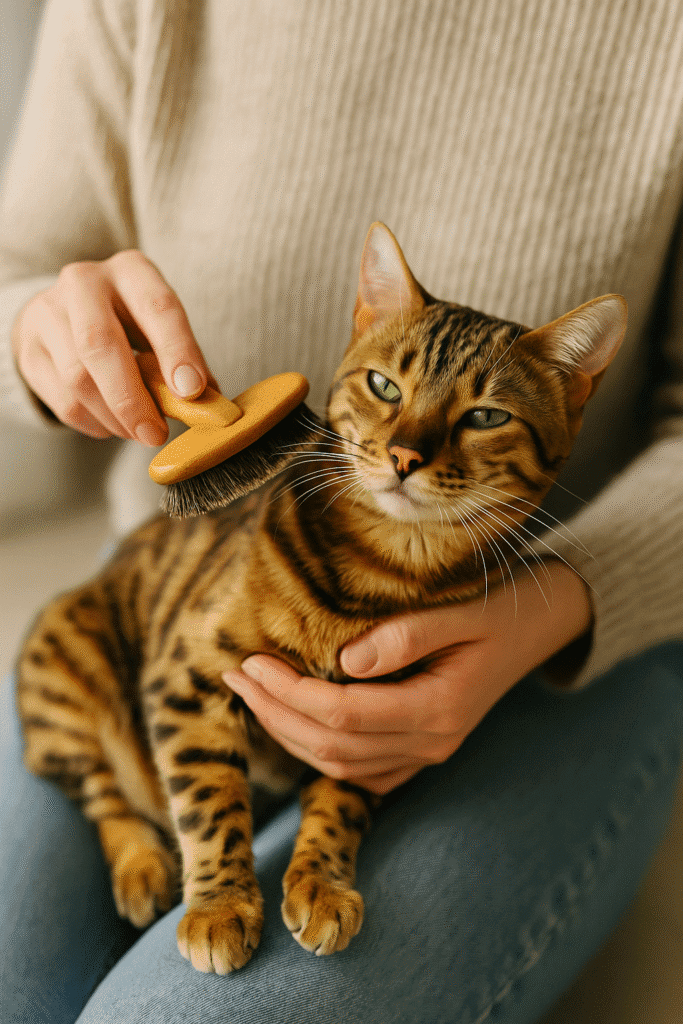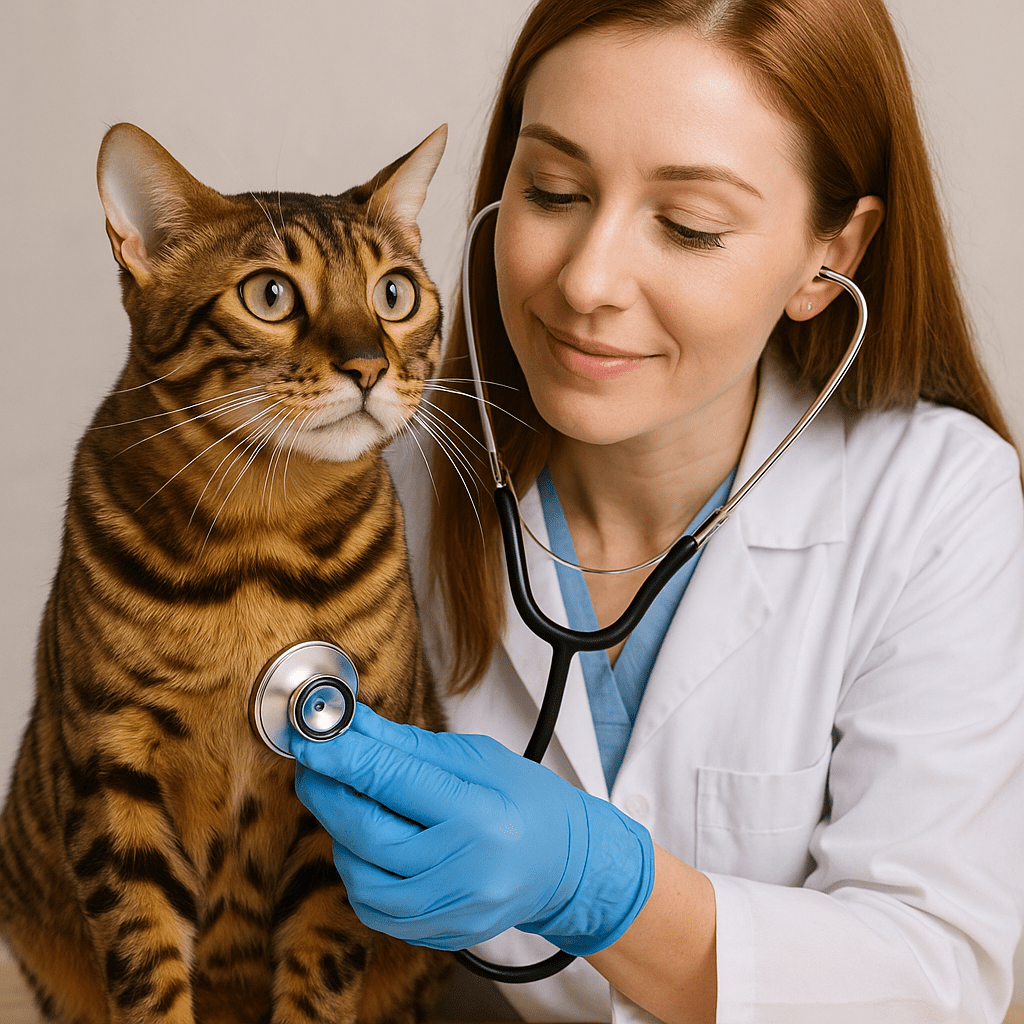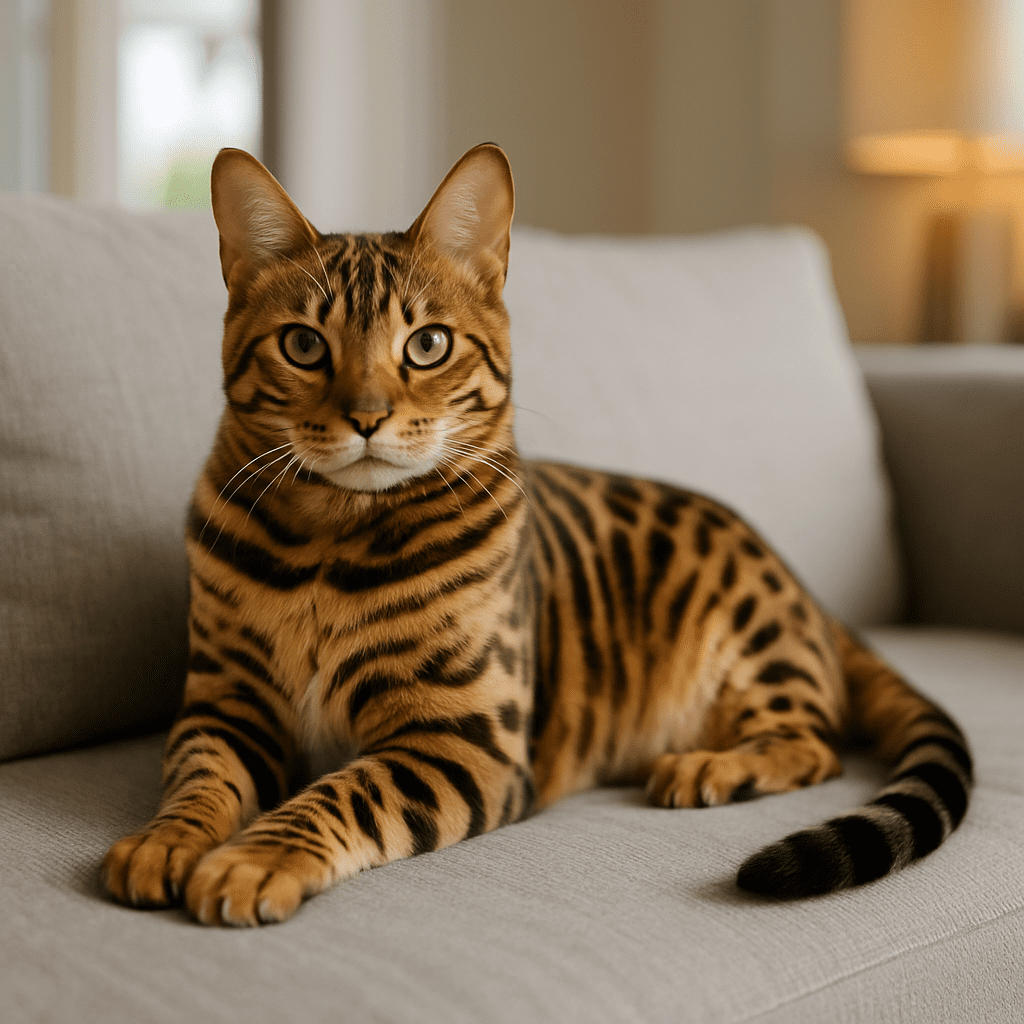Bengal Cats: Traits & Care Tips
Bengal cats are one of the most fascinating and eye-catching breeds in the feline world. Known for their leopard-like coats, high energy levels, and affectionate personalities, they combine the exotic look of a wildcat with the temperament of a domestic companion. If you are considering adopting or caring for a Bengal, this guide will help you understand their traits, care requirements, and training tips.

Unique Traits of Bengal Cats
Bengals are instantly recognizable because of their striking appearance. Their coats feature rosettes, marbling, or spotted patterns similar to leopards or ocelots. Beyond looks, they are highly active, playful, and intelligent cats that crave mental stimulation. Unlike many cat breeds, Bengals often enjoy water and may even follow you into the shower.
- Appearance: Sleek, muscular body with spotted or marbled coats.
- Personality: Curious, energetic, and affectionate with family members.
- Activity Level: High — they require daily play and stimulation.
👉 Related reading: Maine Coon: Size, Personality & Grooming (Compare another large, playful breed.)
Caring for a Bengal Cat
Caring for a Bengal goes beyond providing food and shelter. They require an enriched environment with plenty of toys, scratching posts, and climbing trees. Because of their intelligence, Bengals are prone to boredom if left alone too long. Puzzle feeders and interactive play sessions are essential.
Their coats are short and low-maintenance but still benefit from weekly brushing to reduce shedding. A balanced diet high in protein will help maintain their muscular build and shiny coat.
Diet & Nutrition
Bengals thrive on high-quality cat food that is rich in protein. Look for formulas that include real meat as the first ingredient. Occasional raw or cooked meat can also be a great supplement. Avoid fillers like corn or soy, which may lead to digestive issues.
Grooming Needs
While Bengals have short hair, grooming is still important. Weekly brushing not only reduces shedding but also strengthens the bond between cat and owner. Unlike long-haired cats such as Persian Cats, Bengals do not require daily grooming, making them easier to manage for busy owners.
Common Health Concerns
Bengals are generally healthy, but like all breeds, they are prone to certain conditions. Regular veterinary checkups are crucial to detect issues early.
- Hypertrophic Cardiomyopathy (HCM): A common heart condition in many cat breeds.
- Progressive Retinal Atrophy (PRA): An eye disorder that may affect vision.
- Dental Issues: Like most cats, Bengals benefit from regular dental care. See our guide on Pet Dental Care.
Keeping vaccinations up to date and providing flea/tick prevention is also essential.
Training & Enrichment
Bengals are highly trainable thanks to their intelligence. Clicker training and positive reinforcement work well. They can learn commands like “sit,” “come,” or even leash walking. Providing vertical spaces such as cat trees or shelves is a great way to keep them entertained.
Socialization
Bengals are very social cats that bond closely with their families. Early socialization helps them adjust well to children, other pets, and busy households.
Exercise
Daily playtime is non-negotiable. Bengals require at least 30–60 minutes of active play each day. Laser pointers, wand toys, and fetch games are all effective ways to burn energy. Without proper exercise, Bengals may develop destructive behaviors.

FAQs About Bengal Cats
Are Bengal cats good with kids?
Yes, Bengals are generally great with kids. Their playful nature matches well with active households. However, supervision is important, especially with younger children.
Do Bengal cats get along with other pets?
Bengals can live harmoniously with dogs and other cats if properly introduced. Their high energy means they may overwhelm more timid pets, so slow introductions are recommended.
Are Bengals noisy?
Bengals are vocal and will often “talk” to their owners. They have a wide range of meows, chirps, and growls that they use to communicate.
Conclusion
Bengal cats are a stunning and intelligent breed that require a balance of love, stimulation, and proper care. From their unique appearance to their playful personalities, Bengals make excellent companions for the right households. If you are ready for an energetic, affectionate, and striking feline friend, the Bengal cat may be the perfect addition to your family.
Next step: Learn more about Ragdoll Cats or check out our Clicker Training Guide for Dogs if you have a multi-pet household.

